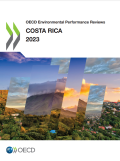
This report evaluates sustainable development progress in Costa Rica, focusing on biodiversity, and provides 52 recommendations aimed at improving environmental performance.
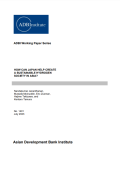
This paper argues that greater clarity about the transition to green hydrogen will help strengthen the alignment with Japan’s international climate strategy and local revitalization policies.
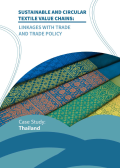
This paper looks at environmental hotspots in textile value chains in Thailand and trade policy instruments that can have an impact on sustainability and circularity.
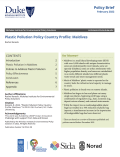
This document outline: the nature of the plastic pollution problem in Maldives, and available information about the national, subnational and international policy landscape guiding government approaches to the plastic pollution problem in the country.
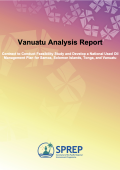
This report documents used oil production and existing used oil collection, storage, treatment, disposal and export services in Vanuatu to determine logistical issues and opportunities related to national used oil management.
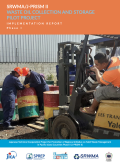
The report covers the waste oil activities implemented in Samoa and presents procedures, results and issues of the waste oil collection during the study.
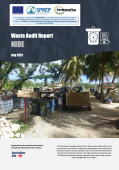
The report, prepared by SPREP in collaboration with (T+TI), presents the findings of the waste audit undertaken for the Pacific island nation of Niue.
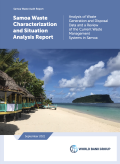
This report presents the findings of a study that includes an overview of the Samoan waste sector, current resource recovery, and institutional arrangements, private sector engagement and available infrastructure for both waste management and recycling.
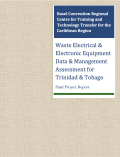
This report documents the outcomes of a rapid assessment on the waste electrical and electronic equipment (WEEE) waste stream in the Caribbean island nation.
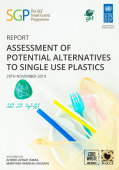
In 2011 the Maldives imposed a 400% import duty on plastics bags and made 'environmentally friendly' plastic bags duty-free. This policy change led to a significant increase in the imports of 'oxo-biodegradable' bags into the market causing even more harm to the environment than regular plastic bags.
